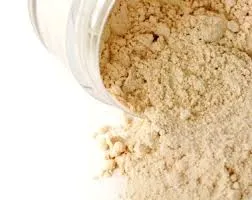Understanding Boiler Water Chemistry A Key to Efficient Operation
Boiler water chemistry is an essential aspect of the operation and maintenance of steam boilers. Proper management of water quality not only maximizes the efficiency of the boiler but also extends its lifespan, reduces maintenance costs, and minimizes the risk of operational issues such as corrosion and scale formation. In this article, we will delve into the critical factors of boiler water chemistry, including its constituents, the importance of pH levels, and treatment methods used to maintain optimal water quality.
Key Components of Boiler Water
Boiler water chemistry involves understanding the various chemical components present in the water used in boilers. These components include dissolved solids, pH levels, oxygen, alkalinity, and hardness. The presence of dissolved solids, such as salts and minerals, can significantly impact the performance of a boiler. High levels of dissolved solids can lead to the formation of scale on the heating surfaces, hindering heat transfer and potentially causing overheating or equipment failure.
The Importance of pH Levels
One of the most critical parameters in boiler water chemistry is pH. The pH level indicates the acidity or alkalinity of the water. For most boilers, maintaining a neutral to slightly alkaline pH (typically between 8.5 and 10.5) is crucial. An inappropriate pH can result in corrosion of metal components. For instance, a low pH (acidic water) can increasingly corrode boiler tubes and piping, which can lead to leaks and catastrophic failures. Conversely, water that is too alkaline can also cause problems, promoting the formation of scale and sludge that can accumulate within the boiler system.
Alkalinity as a Control Measure
Alkalinity is another important aspect of boiler water chemistry. It refers to the water's capacity to neutralize acids and is primarily composed of bicarbonates, carbonates, and hydroxides. Adequate alkalinity helps to maintain the desired pH levels in the boiler water by buffering against acidic fluctuations. Proper control of alkalinity prevents pH from dropping too low, which is essential in minimizing corrosion risks.
The Role of Oxygen and Corrosion Control
boiler water chemistry pdf

Oxygen is a common contaminant in boiler water, often entering the system through leaks or poorly sealed fittings. The presence of oxygen is detrimental because it can lead to pitting corrosion, which occurs when localized areas of corrosion compromise the integrity of boiler tubes. To mitigate this risk, oxygen scavengers such as sulfites or amines are often added to the boiler water to chemically remove dissolved oxygen, ensuring the safety and longevity of the boiler system.
Treatment Methods for Boiler Water
Numerous treatment methods are available to manage boiler water chemistry effectively. These methods include
1. Chemical Treatments The addition of chemicals such as phosphates, polymers, and amines can help control scale formation, prevent corrosion, and maintain alkalinity levels. These treatments are tailored to the specific needs of the boiler system.
2. Filtration The removal of particulates and impurities through filtration systems helps to reduce the concentration of dissolved solids in the boiler water. This step is vital to maintaining water quality.
3. Blowdown Regular blowdown or the intentional removal of a portion of boiler water helps to control the concentration of dissolved solids. This process allows for the discharge of high-concentration water while replacing it with fresh feedwater.
4. Reverse Osmosis For systems requiring extremely high purity water, reverse osmosis treatment can effectively remove contaminants and minimize the overall dissolved solids in the boiler feedwater.
Conclusion
Effective boiler water chemistry management is crucial for the efficient operation and longevity of boiler systems. By understanding and controlling key parameters such as pH, alkalinity, and oxygen content, facility operators can significantly reduce corrosion, scale formation, and operational costs. Regular monitoring and proper water treatment strategies not only ensure optimal performance but also enhance safety standards. Adopting best practices in boiler water chemistry is essential for any organization relying on steam boilers for their operations.

